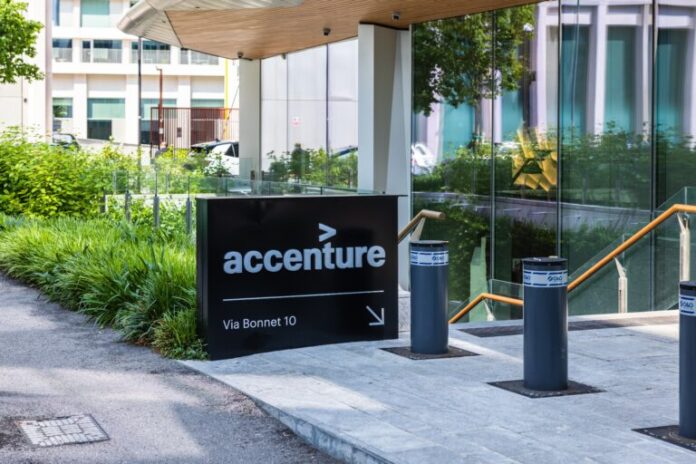Accenture, one of the world’s largest professional services firms, has announced a company-wide training program in agentic artificial intelligence (AI) following a major round of staff reductions.
The Dublin-headquartered firm confirmed it is re-skilling nearly its entire workforce of more than 700,000 employees in the use of agentic AI systems. These systems differ from conventional AI by operating autonomously, while completing complex multi-step processes without constant human supervision.
The initiative was revealed by Julie Sweet, Chair and Chief Executive Officer of Accenture, in an interview with Bloomberg. Sweet described the training as a necessary response to technological change.
“Every new wave of technology has a time where you have to train and retool. Accenture’s core competency is to do that at scale,” she said.
The announcement comes after Accenture disclosed it had cut at least 11,000 jobs between May and August 2025.
According to Chief Financial Officer Angie Park, the company is pursuing “rapid talent rotation,” focusing resources on employees who can adapt to AI-based roles. Severance costs linked to the layoffs are expected to reach US$865 million.
Accenture’s investment in AI has already delivered strong financial results. In the first half of this year, its generative AI consulting generated US$2.6 billion in revenue. Building on that, the company wants to expand into agentic AI by helping clients integrate autonomous systems into areas such as procurement, contract management, and customer service.
Several corporations are already adopting these technologies. Hewlett Packard Enterprise (HPE) is working with Accenture to automate spend management, while financial services firms are piloting agentic “AI agent huddles” for compliance and operations. In June, PepsiCo deployed Salesforce’s Agentforce platform across its operations.
Despite the commercial opportunities, the scale of Accenture’s retraining effort raises challenges. Coordinating programs for employees across multiple time zones and varying skill levels will be a significant logistical task.
Regulatory frameworks also remain unsettled, particularly in financial services and healthcare, where autonomous decision-making systems face stricter oversight.
So far, Microsoft, Meta, Google, IBM, and Amazon have each reduced staff in non-AI roles while expanding their hiring and investment in AI research, cloud services, and automation.
Sweet said that the company sees AI as an opportunity for growth rather than reduction:
“We view AI as expansionary, not deflationary. It is part of everything we do.”
With its retraining program underway, Accenture is positioning itself as a leading advisor for global corporations looking to shift to autonomous AI systems. The success of the initiative, analysts note, will depend on whether the company can translate employee training into measurable client outcomes.



